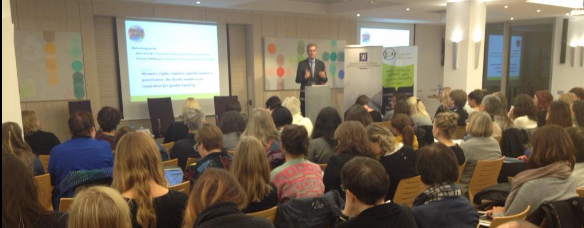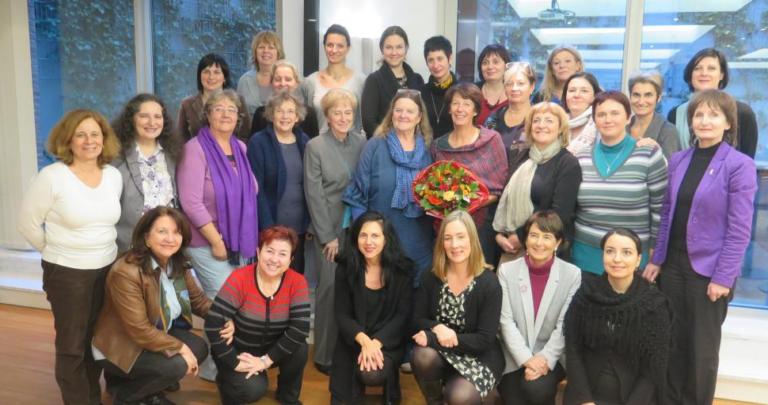[Women News Network, Colorado, 27 June 2011] According to the United Nations and The International Campaign Against Honour Killing at least five thousand women and girls worldwide are murdered each year to preserve ‘family honour’. Many of these women are killed for making personal choices that don’t match the limits placed on them by their families and local society.
Personal choices come in conflict with a family’s ‘honour’ when a young woman begins to ask – Who do I want to be my life-partner?; What if I don’t want an arranged marriage?; How do I want to dress in public?; What music do I want listen to?; How can I own my own business?; Can I attend a university of my choice?; When will I be able to sing in public, or go dancing?; Can I ask for a divorce if my husband beats me?; Can I attend school?
These questions can bring danger in a society where women and girls are expected to follow strict guidelines.
Judged heavily for such basic freedoms as personal career choices, education, styles of dress, choice of friends and even the number of children they wish to have, women who have become victims of honour violence are trapped in a never-ending cycle of self-denial.
Launched in April 2011 to give a digital memorial to the victims of honour crimes worldwide, a new website called Memini, which means ‘remembrance’ in Latin, outlines the lives of twenty-five women who have been murdered through honour violence.
Created by award-winning Norwegian filmmaker, composer and celebrity pop singer Deepika Thathaal known as Deeyah by her fans, the Memini site brings an unforgettable look at the haunting faces of honour violence.
Each face on Memini shows a haunting desire to live.
Born in Norway from immigrant parents of Pashtun and Punjabi descent, Deeyah knows well that dangers do exist for women who step outside their society’s ‘cultural norm’.
“Honour Killings represent the ultimate in control and oppression of women”, says Deeyah.
Family members (or friends of the family) are often the ones who carry out the killing in these murders. The violence in honour crimes can be found worldwide.
This severe form of violence against women expressed as honour violence exists today on all continents. Specifically, it can be found within Syria, Egypt, Morocco, India, Turkey, Bangladesh, Jordan, Iraqi Kurdistan, Afghanistan, Pakistan, Lebanon, Israel and Palestine, as well as inside immigrant communities in United States, Canada, Spain, Italy, Germany, Sweden, Norway and the UK.
“The perpetrators of these honour motivated crimes want all signs of the lives of these young women to be completely wiped out – almost as if these young women never existed in the first place,” explains Deeyah.
“I reported the incident to the police, but they didn’t take me seriously,” said Turkish born Kurdish immigrant to Sweden, Fadime Sahindal, as she shared to police her first experience reporting personal threats by family members in a formal meeting of the Sweden’s parliament, November 21, 2001.
Less than two months after her speech before the Parliament of Sweden, Sahindal was shot dead at the hand of her father, an illiterate Kurdiah farmer who had moved to Sweden in 1980 as she dared to travel against her fathers’ wishes to visit the grave of an ‘unapproved’ Swedish boyfriend who had been killed in a car accident.
“He said I was rejected from the family and was not allowed to come back to Uppsala (where my boyfriend was buried). If I did I would never leave the city alive,” said Sahindal in her report to the police.
While women are not the only ones who suffer from this crime, women and girls make up the majority of victims.
“Many factors such as gender, age, place of residence, education, and tribal and kinship relations, affect how honour is perceived and the place it has in people’s lives”, says, “The Dynamics of Honour Killings in Turkey” (Feb 2007) by the UNDP – Population Association at the United Nations Development Programme and the UNFPA – United Nations Population Fund.
In Turkey, attitudes about honour violence vary widely according to one’s education and background. “Those who openly support honour killings state that a person who committed an immoral act would deserve to die and that the people who are forced to kill them would have no other choice”, continues the United Nations report.
Those who work in the field to fight against honour crimes are constantly faced with the same basic question over and over again: “But what can be done to stop honour killings?”
Documenting twenty-five immigrant women and girls from diverse religious and ethnic backgrounds who died from honour killings around the world, the Memini site exists as an on-going project. Many cases include immigrant women.
One case includes the murder of 26 year-old mother of two, Surjit Athwal, who travelled in 1998 from her home in the UK to a family wedding in India.
The very core of the concept is basic, it is the control of women and their behaviour, if they transgress they will be punished, honour killings being the ultimate price a young woman pays and it is the ultimate betrayal by a family of their own child.
What began as a missing-persons inquiry in 1998 with interviews made in the Indian village where Athwal was last seen ended as a landmark 2007 UK court case. The case sentenced two different people, Athwal’s mother-in-law and her husband, for personal involvement with her murder.
Anthwal, who was married at the age of 16, was planning to leave her husband and had filed for divorce before she left on her wedding trip. She never did return. Her body was never found.
“An Honour Killing is a planned, group decision. It’s a pre-meditated, collective decision. Basically, it’s an ‘organised crime’”, says Deeyah.
Another case, 16 year old Heshu Yones was murdered by her father for having a relationship with a classmate. Similarly, 25 year old Sandeela Kanwal, was also a victim of murder at the hands of her father for asking for a divorce to end an unhappy marriage.
Even though legislation in Lebanon became more stringent with honour-based crimes in 1999, a loop-hole exists in Article 252 of the penal code that allows sentences against honour crimes to be commuted if the violence stems from anger against the victim because the victim has been involved in an ‘unjust and dangerous act’, particularly an act that involves what is perceived as ‘adultery’.
The perpetrator of this crime’s goal is to erase the lives of their victims. To erase their presence. To completely remove the “stain” of their existence from this earth.
In 1989 Jordanian journalist and author of the book, “Murder in the Name of Honour”, Rana Husseini, collected 159,000 signatures to help change the laws covering honour violence in Jordan, but set-backs and recent changes in Jordan’s government has placed honour crimes law reform on hold.
In the meantime, Memini hopes to keep the memory and dignity of victims alive through an expanding online memorial archive.





